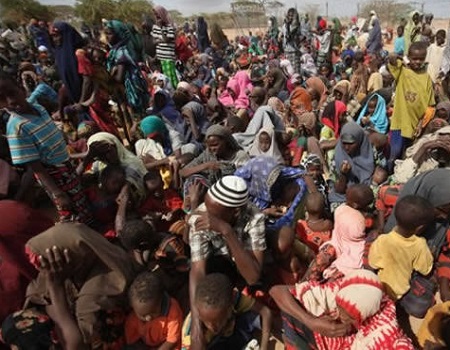Dehumanisation can be defined as the act of making someone or a group of people feel or appear somehow less than human.
According to Haslam (2006), it involves stripping people of the very basic qualities that make them human. This deplorable act of dehumanisation involves stripping people of the very basic qualities that make them human.
Africans for centuries have been victims of dehumanisation and this unlawful mindset has engulfed us as a nation and nationals of Nigeria.
However, are we to blame for all the maltreatment we suffer both abroad and at homeland?
Yes, Nigeria as a nation is one that lacks in a few ramifications. Our government system is not functional in the ways it should be, individuals have a natural distrust for one another due to years of brainwashing and ignorance.
But if we as human beings sit back and analyze ourselves, would we say that dehumanisation of Nigerians and the nation of Nigeria are justified? It isn’t because before we are Nigerians we are humans.
ALSO READ: NBC’s classification of Kogi State as most corrupt: A fallacy of mischief
If we think about how dehumanisation affects us especially when it comes to Nigerians migrating to other countries in search of greener pastures, dehumanisation portrays itself as a stumbling block to the success of individuals and in hindsight the nation.
It is no shocker that in Nigeria as graduates getting good jobs is a huge struggle even when they are overqualified, it’s either you know someone or you’re financially buoyant before you can find a good paid employment, in the same line, going abroad with the mindset of getting good paid employment is a big struggle instead we are underemployed making us hunt like a lion and eat like an ant knowing fully well that our own government can’t give us good paid employment, so why will other countries want to when they also have qualified personnel.
Nigerians are known for fraud and corruption, our leaders are known to be Kings in corruption and embezzlement of country’s money and these awful acts are being published on newspaper and broadcast on TVs and radio stations for the whole world to see, washing our dirty lining in public and exposing ourselves to the whole world and obviously no one wants to employ a dishonest person or someone of such rudiments.
In order for us as Nigerians to resolve this issue of dehumanisation to an extent (because dehumanisation roots from a deeper psychological issue by and from the dehumanizers).
I feel that we as Nigerians need to understand that charity truly behind at home and start fixing the issue on our part here in our homeland by understanding that, the way we treat ourselves is not just limited to how we behave when we are in Nigeria
. Nigerians in diaspora that engage in dishonest and outright criminal acts produce implications of that consequently affect Nigerians here at home.
Likewise, what we do to ourselves provides a guideline to what others do to us and it is imperative that those of us in the homeland make sure our best foot is put forward at all times.
• Ajoke wrote in from the Department of Mass Communication Babcock University.






